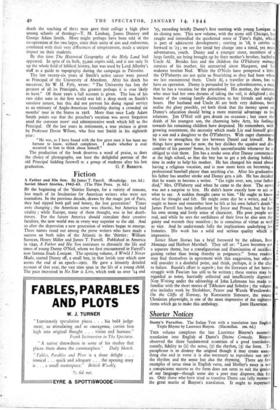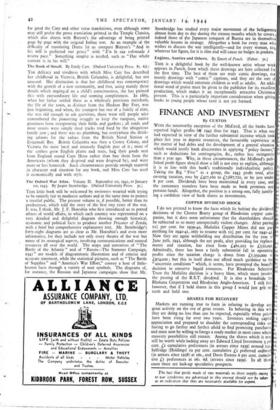Shorter Notices Tms volume completes the late Laurence Binyon's masterly
translation into English of Dante's Divine Comedy. Binyon observed the three fundamental essentials of a good translation, namely, fidelity to (r) the sense, (2) the rhythm, (3) the form. To paraphrase is to destroy the original though it may create some- thing else and in verse it is also necessary to reproduce not only the rhythm and the sense but also the rhyming. There are few examples of terza lima in English verse, and Shelley's essay is not a conspicuous success as the form does not seem to suit the genius of our language—though some day a poet may disprove,this for us. Only those who have tried to translate Dante can fully measure the great merits of Binyon's translation. It ought to supersede for good the Cary and other verse translations, even although some may still prefer the prose trans;ation printed in the Temple Classics, which also shares with Binyon's the advantage of being printed page by page with the original Italian text. As an example of the difficulty of translating Dante let us compare Binyon's " And in his will is perfected our peace " with " E'n la sua volontade e nostra pace." Something simpler is needed, such as " Our whole content is in his will."



























 Previous page
Previous page